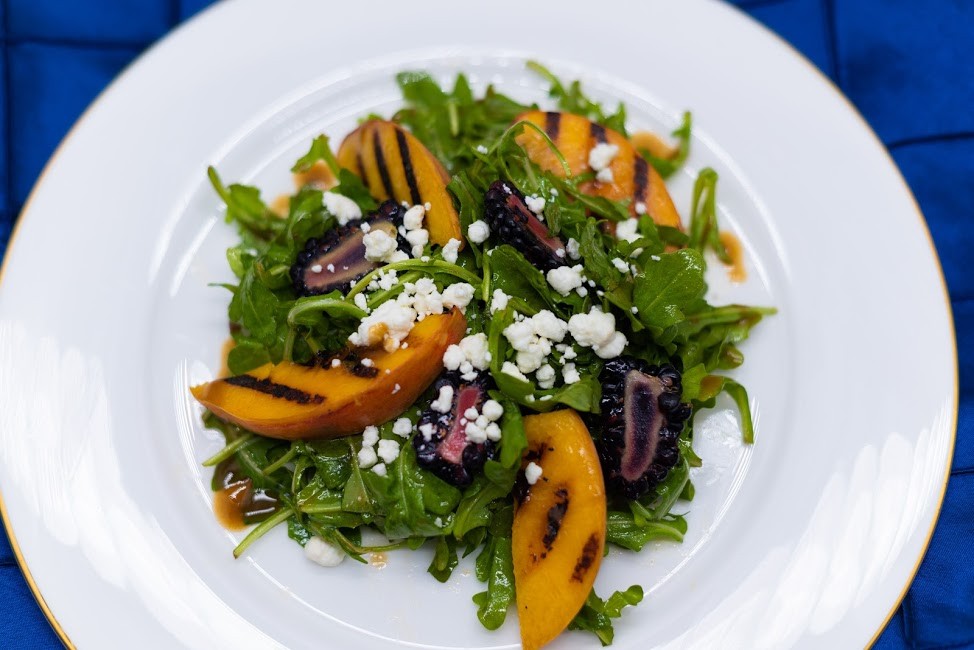Just like the original version, the new Sustainable Living menu focuses on sustainable ingredients and local products, is primarily vegetarian, and will fluctuate based on seasonal trends and specific product availability. In choosing the Sustainable Living menu in place of other menu options, clients will receive a delicious meal while reducing their event’s environmental impact.
The new menu was developed by Chef Jerome Charpentier, Executive Sous-Chef for Columbia University Event Management’s Catering and Dining departments. A French chef who graduated from Edouard Herriot College in the Champagne region France in 1988, Chef Jerome started his culinary experience In Paris at Le Grand Café des Capucines, a popular high-end brasserie. He then expanded his expertise by working across France and Europe, gaining more skills in Switzerland, Germany, and England in places ranging from French classic to star Michelin restaurants.
Chef Jerome moved to the United States in 2002, settling in Long Island before coming to New York City and working for the Patina Restaurant Group among other fine dining establishments. After 35 years of culinary practice and leadership, Chef Jerome is now fully committed to directing Event Management’s culinary services to the highest standards.
In developing the new Sustainable Living menu, Chef Jerome and the team focused heavily on plant-based products, grown locally and seasonally, and ethically-caught seafood. Animal products are generally more resource-intensive than plant-based foods because they require feed production and processing, as well as land-use change for grazing in most cases. Cattle and other ruminant animals also emit methane, a greenhouse gas (GHG), as they digest plants. On average, seafood has a smaller carbon footprint than other animal proteins because fishing doesn’t require farmland or care of livestock. Most seafood-related GHG emissions come from fishing boats, although the sustainability of seafood is also determined by the availability of stock.
When the Sustainable Living menu was first created in 2020, the Event Management culinary team worked closely with the Earth Institute to determine the most sustainable options. The Sustainable Living menu was also analyzed as part of a student capstone project in the School of Professional Studies’ Master of Science in Sustainability Management program, which assessed the overall sustainability of Faculty House’s operations. According to lifecycle analysis data provided by the capstone group, the Sustainable Living menu produces roughly 63 percent less greenhouse gas (GHG) emissions than a “baseline menu” compiling an average of Event Management’s 10 most popular menus.
Columbia departments can choose the Sustainable Living menu for events hosted in Lerner, Low Library, and Faculty House for buffet and plated meals. Pricing is comparable to traditional menu offerings. The team will assess usage and based on demand, determine the feasibility to offer additional sustainable catering options. The Sustainable Living menu is the second specialized catering menu from Event Management aiming to support initiatives important to the campus community; the Blue Menu donates a portion of the bill to Columbia Community Service.
